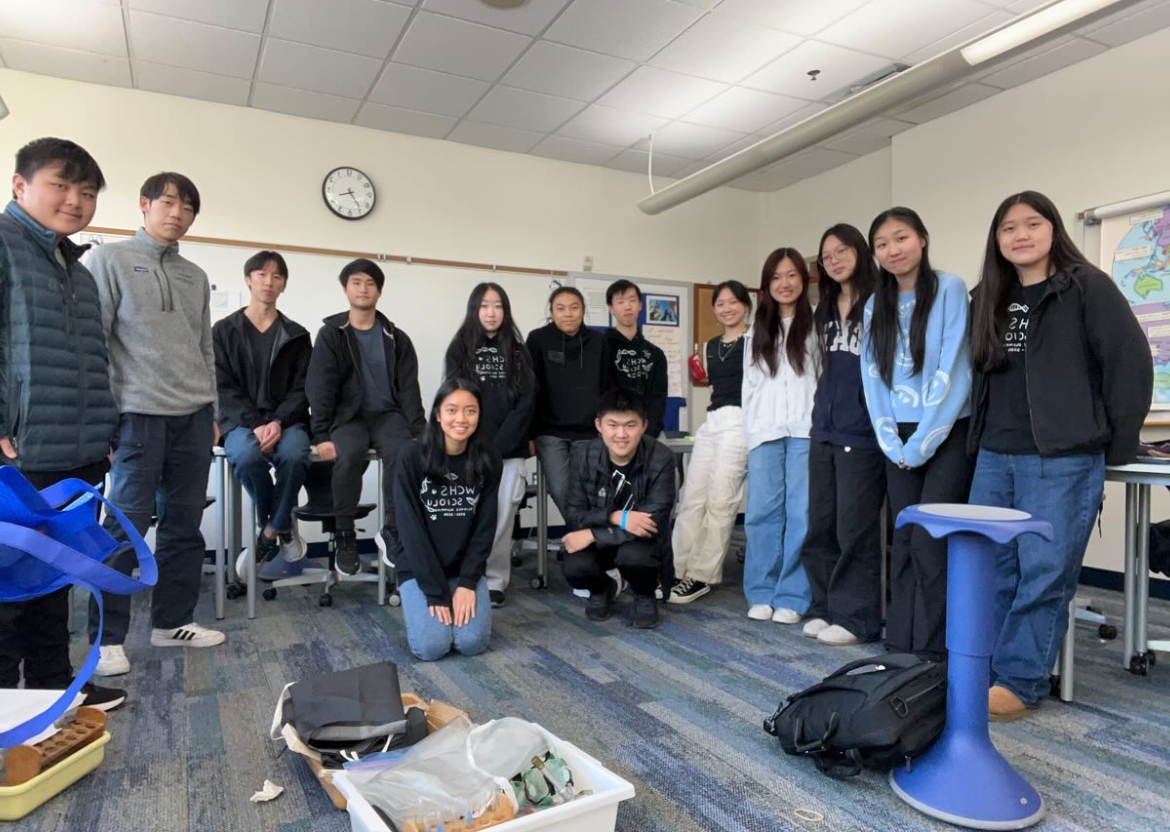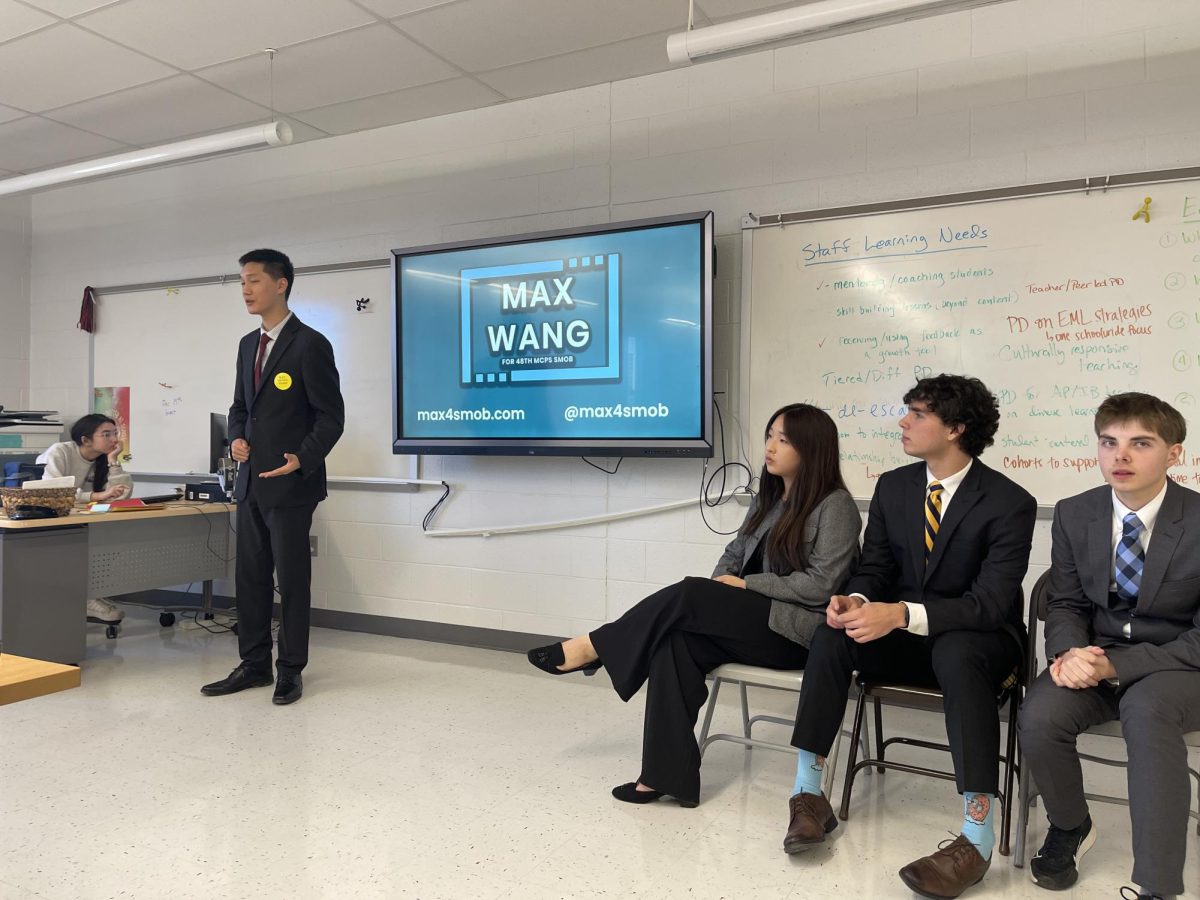Each day at CHS, students face a variety of scenarios including cramming for last minute tests or stressing over having enough money to pay for lunch at Cabin John Mall. However, there are some situations where students truly have to ask: What would I do?
Although we are all Bulldogs, we may act differently in certain ethically-questionable situations. For instance, what would you do if someone dropped a wallet and it had $20 inside, but the student’s ID was also in the wallet? Or what if you saw another student crying in the hallway? Would you intervene? The Observer is here to find out what students would do in these made-up but realistic scenarios.
- Would You Cheat?
You have a huge test, but even after studying for hours the night before you still do not understand the concepts. However, when you walk through the doors, there is a substitute teacher who is confused about procedures and is not paying attention. Would you cheat?
According to an Observer survey of 90 students, over half of students surveyed said that they would in fact cheat on the test instead of just taking it to the best of their abilities.
However, there are still some students who would not want to risk getting caught and therefore would not take the chance and cheat.
“I’d still be too scared that the sub would end up noticing and I’d get a zero,” senior Drew Gerber said.
- Do you stop bullying?
After a long day, you’re walking down the halls, ready to go out to lunch with your friends, but you see a student being bullied. Would you intervene and stand up for the victim?
According to the same survey, 53 percent said they would intervene and help, 23 percent said that they would stand up to the bully and 15 percent said that they would watch, but they would not get involved. The remaining nine percent said they would do something other than the aforementioned responses.
“I would probably stand up for the victim, but I would grab a teacher or another adult first to back me up because I would be scared,” said junior and Best Buddies Club secretary Ruoping Li.
- Would you take money from a wallet you found on the ground?
During school, while walking to your next class, you look down at your feet and spot a wallet laying on the ground. Confused and curious, you pick up the wallet and open it to find $20 worth of cash. However, along with the money, you also find the student’s school ID, indicating whose wallet it is. Would you still take the money?
According to a different Observer survey of 49 students, only four students said that they would take the money from the wallet, while the rest of the students would return the wallet to its original owner.
“If it was my wallet, I wouldn’t want someone taking it from me,” sophomore Gwen Asbury said.
- Would you help a student who was having a rough day?
You are walking to the media center to print out something for class, and you spot a student sitting alone in the hallway with his head in his hands, crying. You’ve never seen him before. What do you do?
According to the survey, about 65 percent of students said that they would just keep walking and pretend not to see him.
“There’s been many times where I’ve been with friends, and I see someone just sitting alone and I think about how cool it would be to just sit down with them and talk instead of pretending to look busy,” senior WeiAnne Reidy said. “But I’m not going to pretend I’m that nice person. I’ve never done anything like that, but I wish I had the guts to. It’s something I can change about myself though.”
These situations are very different from one another, as they either benefit the self or another person. However, why is it acceptable that students find it appropriate cheat to earn a higher grade, but they cannot bring themselves to stop and help a crying classmate?
According to a Psychology Today article, we are hesitant to intervene in a situation in a public place because of the “bystander effect,” where we “pass the buck” and ignore the problem because we believe that others will take care of it, since there are many people walking around who we think will probably act. However, this proves to be a chain reaction among the entire crowd, which causes people to most likely help themselves before acting quickly in group situations.
Another reason why people may find it okay to cheat yet find it unacceptable to take money out of a wallet is because of guilt.
According to AP Psychology teacher Rodney Van-Tassell, students may behave in different situations depending on who they would impact.
“When a student cheats, they may not really feel like they’re hurting someone else,” Van-Tassell said. “There’s guilt all the way around, but if I take money from your wallet, I know you’re going to buy food later that day and see that the money is gone. Whereas if I look over your shoulder and copy your answer, you may not notice, so I’m not hurting you directly.”
Regardless of the situation, however, some students still choose to take the ethical high road.
“I’d rather get a C myself than get an A I didn’t earn,” senior Esther Li said.
Others students would also stop to help another in need, because they would hope that someone would do the same for them.
“If I were in a bad mood, I would want someone to stop and help me,” senior Marquette Lewis said. “It shows people that you care.”







